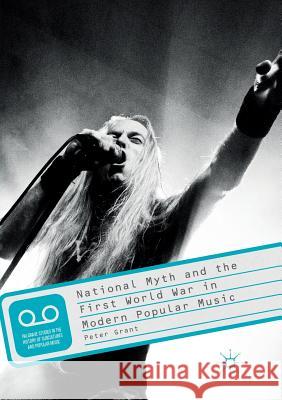National Myth and the First World War in Modern Popular Music » książka
topmenu
National Myth and the First World War in Modern Popular Music
ISBN-13: 9781349958801 / Angielski / Miękka / 2018 / 303 str.
Kategorie BISAC:
Wydawca:
Palgrave MacMillan
Seria wydawnicza:
Język:
Angielski
ISBN-13:
9781349958801
Rok wydania:
2018
Wydanie:
Softcover Repri
Ilość stron:
303
Waga:
0.37 kg
Wymiary:
21.01 x 14.81 x 1.68
Oprawa:
Miękka
Wolumenów:
01
Dodatkowe informacje:
Wydanie ilustrowane











